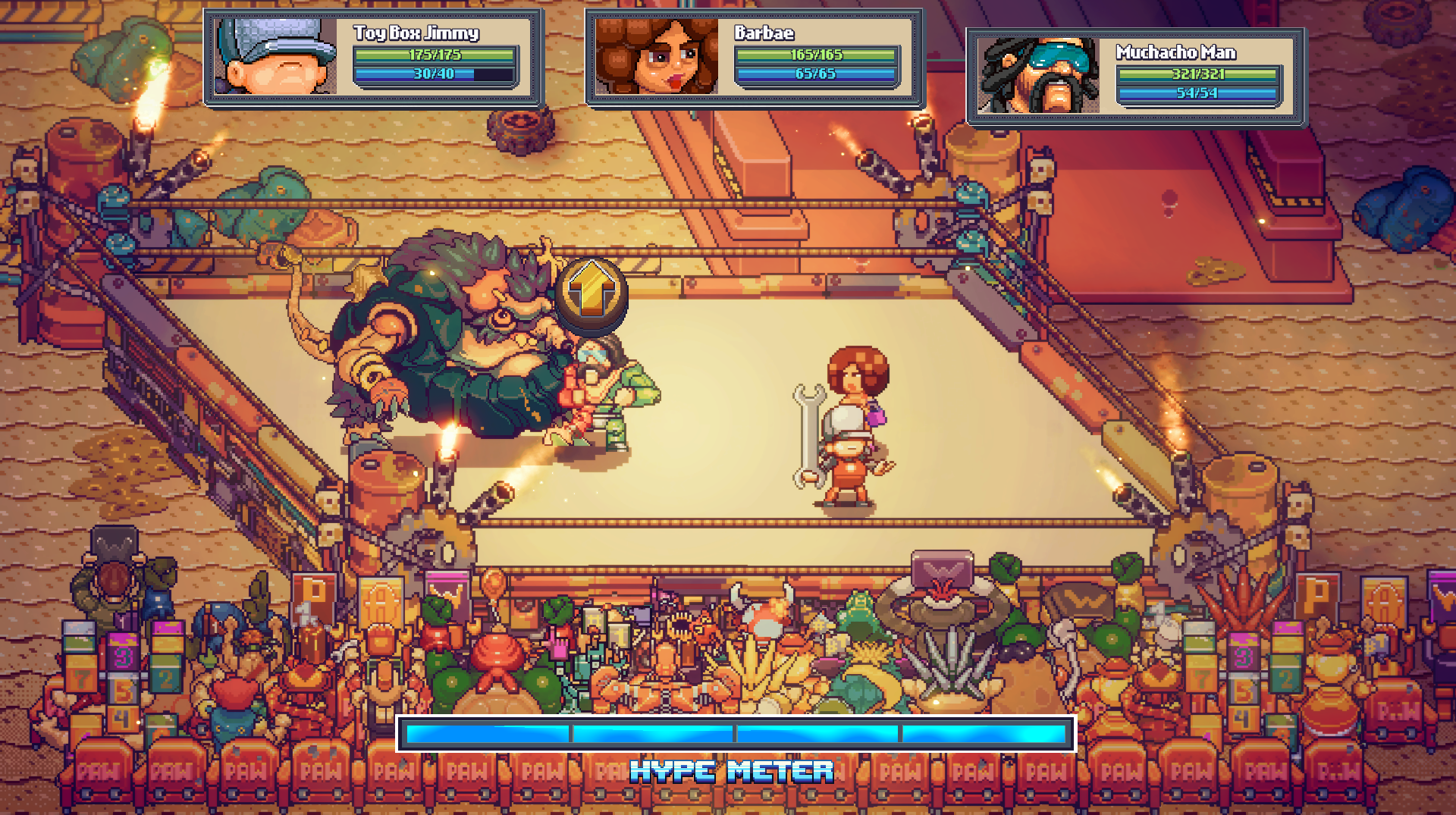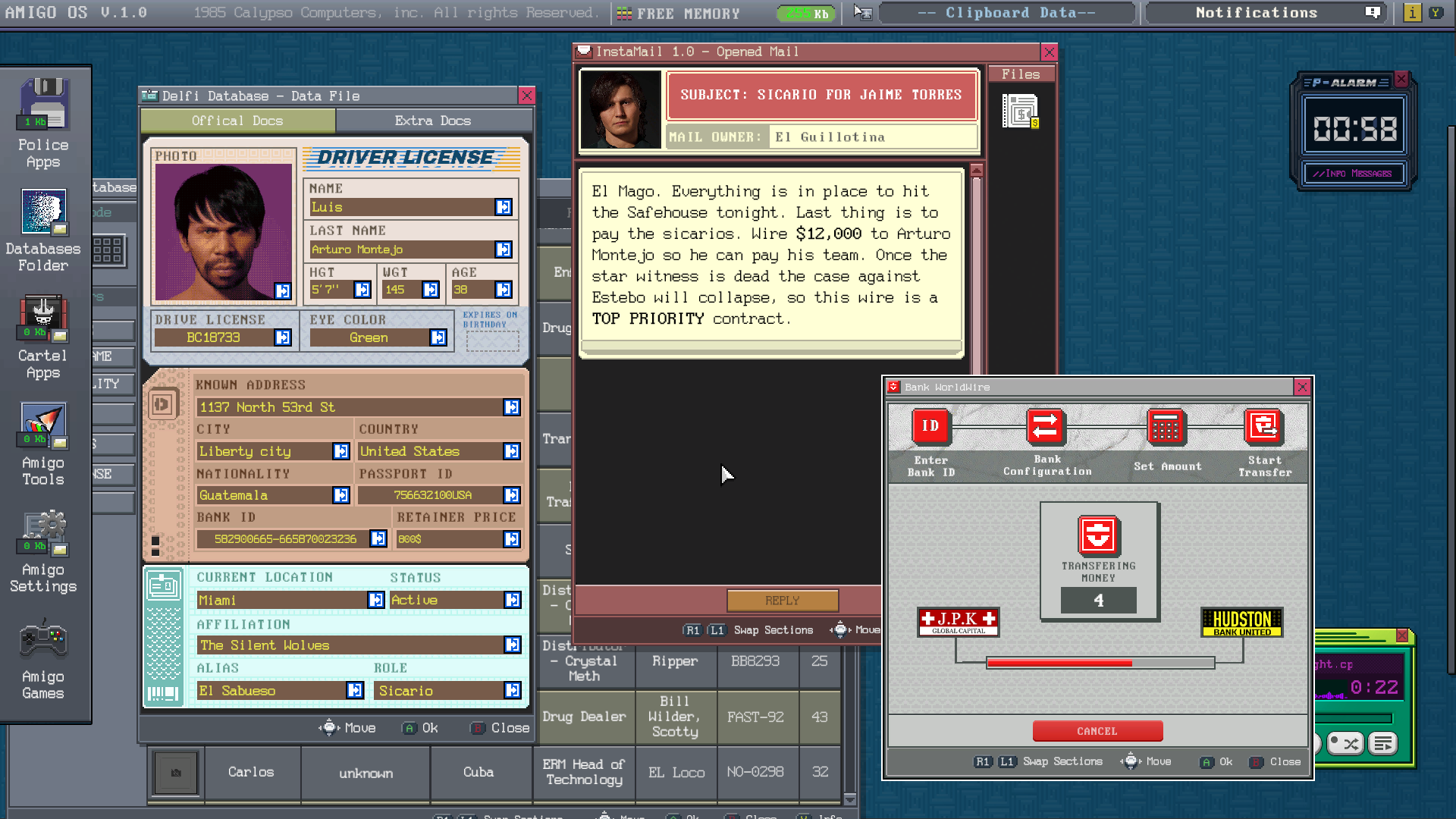WrestleQuest and Vice NDRCVR are small games with big ideas
WrestleQuest and Vice NDRCVR showcased the silly and serious sides of Summer Game Fest

Here at Tom’s Guide our expert editors are committed to bringing you the best news, reviews and guides to help you stay informed and ahead of the curve!
You are now subscribed
Your newsletter sign-up was successful
Want to add more newsletters?

Daily (Mon-Sun)
Tom's Guide Daily
Sign up to get the latest updates on all of your favorite content! From cutting-edge tech news and the hottest streaming buzz to unbeatable deals on the best products and in-depth reviews, we’ve got you covered.

Weekly on Thursday
Tom's AI Guide
Be AI savvy with your weekly newsletter summing up all the biggest AI news you need to know. Plus, analysis from our AI editor and tips on how to use the latest AI tools!

Weekly on Friday
Tom's iGuide
Unlock the vast world of Apple news straight to your inbox. With coverage on everything from exciting product launches to essential software updates, this is your go-to source for the latest updates on all the best Apple content.

Weekly on Monday
Tom's Streaming Guide
Our weekly newsletter is expertly crafted to immerse you in the world of streaming. Stay updated on the latest releases and our top recommendations across your favorite streaming platforms.
Join the club
Get full access to premium articles, exclusive features and a growing list of member rewards.
LOS ANGELES – WrestleQuest and Vice NDRCVR were two of the most interesting games I saw at Summer Game Fest. The former is a pixel-art Japanese-style RPG, where you take control of two action figure wrestlers and battle your way across a colorful toybox world. The latter is an intense crime drama where you play as a computer hacker with limited time and resources, treading a fine line between a crime syndicate and the cops. Their only real point of commonality is their publisher, Skybound Games – and it speaks well that the publisher is willing to take chances on games like this.
I went hands-on with both WrestleQuest and Vice NDRCVR at SGF, and I liked both of them quite a bit more than I expected to.
WrestleQuest

I should preface my WrestleQuest impressions by explaining that I have essentially no frame of reference for pro wrestling. It’s one of my pop culture blind spots. While I get the basic premise and understand the appeal, I couldn’t tell you much about the famous wrestlers from my childhood, and I know even less about current day storylines.
The beautiful thing about WrestleQuest is that while it helps to know all that stuff, it’s still fun, even if you don’t. In WrestleQuest, you play as two wrestler action figures in a toybox full of other characters. This explains how you can interact with some of the most famous wrestlers in modern history (Randy “Macho Man” Savage plays a surprisingly big role in the story) as well as Lego salespeople and stuffed elephants.
During my brief demo, I took control of Randy “Muchacho Man” Santos and Brink Logan: two up-and-coming wrestlers who are both trying to refine their performances and stage personas. The first thing that struck me about WrestleQuest was its bright, colorful graphics, which channel 16-bit pixel art while embracing the fluidity of modern game animation. Each character looks like a recognizable wrestler, but also like an action figure, which is a neat trick.
The second thing I noticed was that the gameplay is just plain fun. In typical JRPG fashion, the battles in WrestleQuest are turn-based. You can employ basic attacks, dip into your pool of special attacks (called “gimmicks”), or even ask your manager for help, which is somewhat like a summon spell from the Final Fantasy games. One unique twist on combat is that simply downing your opponent isn’t enough; you’ll have to play a quick minigame to “pin” them, or else they’ll just pop back up, ready for another round.
As you go through the game, you can also customize a tremendous amount about your character, from their fighting style, to their intro music, to the special effects that activate whenever they enter the ring.
Get instant access to breaking news, the hottest reviews, great deals and helpful tips.
I didn’t play WrestleQuest for long enough to get a great sense of the game beyond that. However, I can say that as a complete outsider to the kayfabe scene, I would gladly play the full thing, which is more than I ever thought I’d say about a wrestling game.
Vice NDRCVR

I played Vice NDRCVR right after WrestleQuest, and the contrast between the two could not have been more jarring. Whereas WrestleQuest is bright, loud and funny, Vice NDRCVR is subdued, quiet and intense. The genre of the game is a bit hard to categorize. It’s somewhere between “adventure” and “sim,” with some stealth and action elements that I didn’t get to experience firsthand.
The basic pitch is this: The year is 1985, and history has taken a slightly different turn. There’s still a booming drug trade in the southern United States, but in this version of 1985, the Internet has been publicly available for a few years, and personal computers are a little more advanced as a result. You play as an undercover cop who must infiltrate the drug ring, and run missions for both the police and the cartel.
What’s interesting about Vice NDRCVR is that the gameplay takes place almost entirely on an operating system that resembles Windows 3.1. You communicate with the police and cartel via chat and e-mail, respectively, and cross-reference various computer programs to find the information they’re looking for. You need to copy and paste addresses, wire money to bank accounts, read through personnel files and so forth. And yet, for a game that’s essentially just office work with a tight time limit, Vice NDRCVR is surprisingly absorbing.
The game is essentially about how well you can multitask. At any given time, you might have five or six different windows open, particularly since you’ll have to figure out which missions are critical to complete each chapter, and which are simply there to earn extra resources. Since you’re dealing with a mid-80s computer, you also have only a few megabytes of RAM to play with, meaning that you’ll have to pick and choose which programs to keep open.
Vice NDRCVR is admittedly a pretty niche game. For starters, you have to consider copying and pasting information from one window to another “gameplay” rather than “busywork.” But there’s an interesting narrative behind the whole thing, and it’s unlike any other game out there. Crime drama aficionados will probably want to check this one out – as will anyone who used a PC in the late ‘80s or early ‘90s.
Both WrestleQuest and Vice NDRCVR are “coming soon,” and neither one has an official price yet. Stay tuned, and Tom’s Guide will supply more info about the games as it becomes available.

Marshall Honorof was a senior editor for Tom's Guide, overseeing the site's coverage of gaming hardware and software. He comes from a science writing background, having studied paleomammalogy, biological anthropology, and the history of science and technology. After hours, you can find him practicing taekwondo or doing deep dives on classic sci-fi.
 Club Benefits
Club Benefits










